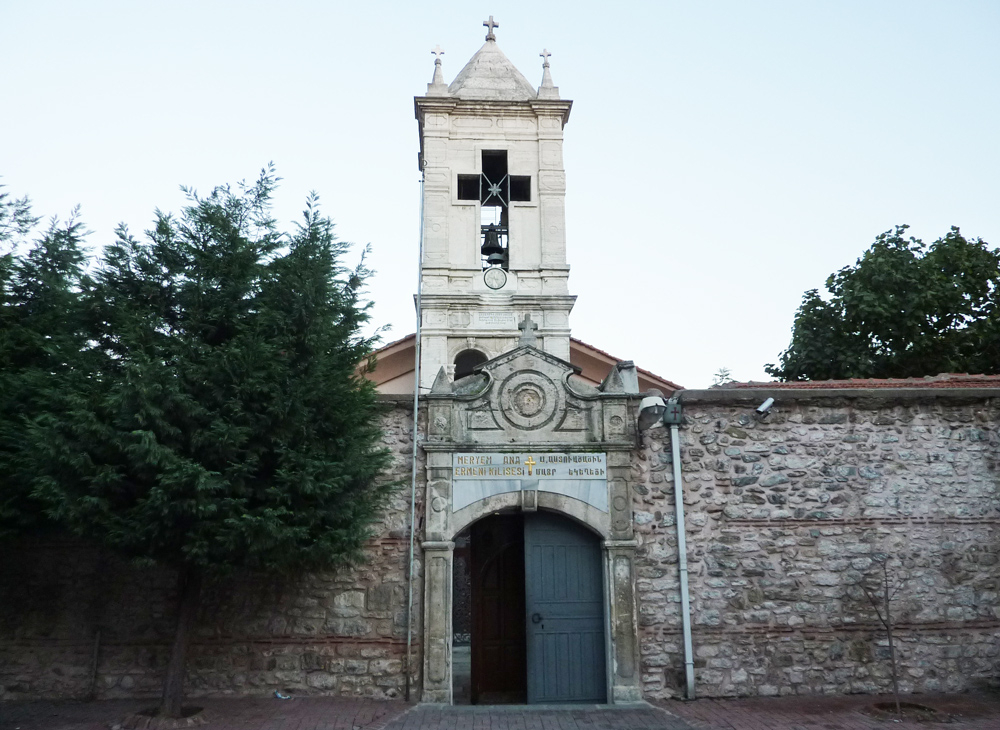by Raymond Ibrahim • June 7th
When pretexts cannot be found, assailants sometimes resort to other tactics. In an apparent attempt to conceal the online presence of at least one church, for instance, authorities labeled its website "pornographic," and blocked it.
"[T]his hateful environment did not emerge out of nowhere. The seeds of this hatred are spread, beginning at primary schools, through books printed by the Ministry of National Education portraying Christians as enemies and traitors. The indoctrination continues through newspapers and television channels in line with state policies. And of course, the sermons at mosques and talk at coffee houses further stir up this hatred." — Uzay Bulut, Ahvalnews.com., March 16, 2020.
Just what, then, do so-called "radical" Muslims... regard as the "proper" treatment of Christians?

On May 8, 2020, a man tried to torch the Surp Asdvadzadzin Armenian Church in Istanbul, which had been repeatedly attacked with hate-filled graffiti, among other desecrations. (Image source: Vmenkov/Wikimedia Commons)
Islamic terror attacks that target Christians in Turkey have been noticeably on the rise. During Christmas in 2011, for instance, a large-scale al-Qaeda plot to bomb "all the churches in Ankara" was exposed. Before Christmas 2015, ISIS issued death threats to at least 20 Protestant churches, and warned that "Koranic commandments... urge us to slay the apostate like you."
In 2017, as widely reported, a gunman dressed as Santa Claus entered a nightclub in Istanbul during New Year celebrations, and murdered 39 people. A "heroic soldier of the caliphate," the Islamic State ("ISIS") later claimed, "attacked the most famous nightclub where Christians were celebrating their pagan feast." The statement further characterized the government of Turkey as being the "servant of the cross."
|
|
No comments:
Post a Comment